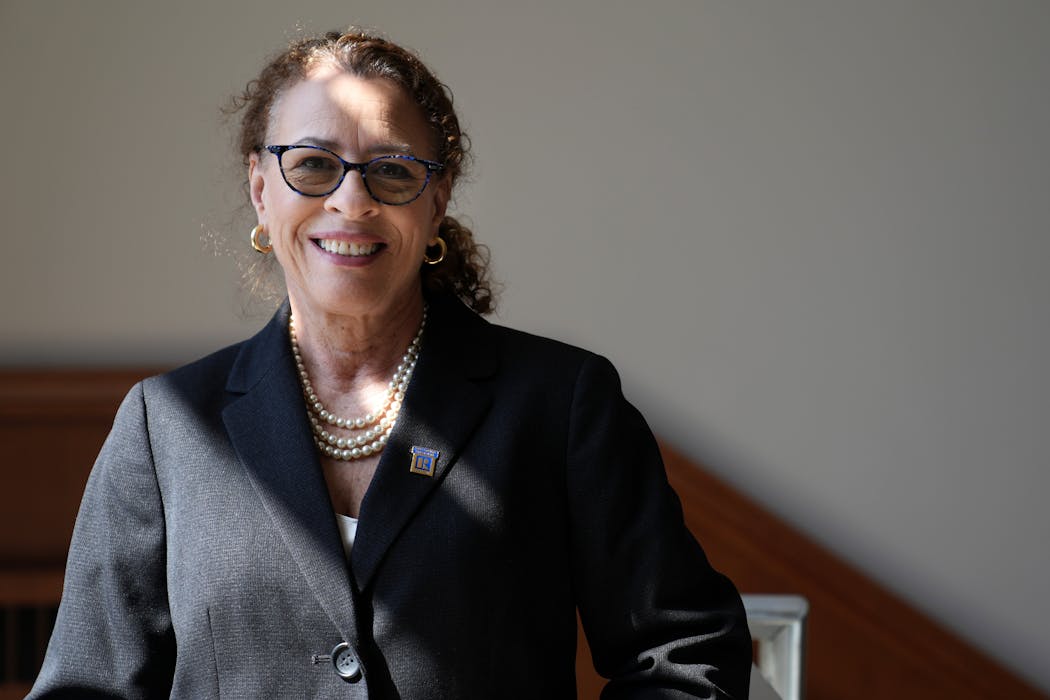The doubling of mortgage rates over the past year is beginning to take a toll on home sales across Minnesota.
This week, mortgage rates topped 6% for the first time in 14 years as lenders continue leaping ahead of the expected hikes to the main rate set by the Federal Reserve.
On Friday, a new report from the Minneapolis Area Realtors showed the lowest monthly sales figure for any August in eight years and the lowest number of listings for any August in at least a decade.
"We're seeing a less competitive landscape as the market has slowed given current interest rates," said Denise Mazone, a Twin Cities real estate agent and president of Minneapolis Area Realtors. "But the silver lining is that a less frenzied market could spell more inventory and opportunity for persistent buyers."
A similar story is unfolding across the state. St. Cloud experienced the steepest decline of all regions for home closures, a 26% year-on-year drop.
House prices are still rising, sales are happening quickly and sellers are still getting close to their asking prices. At the same time, entry-level and working-class buyers are having to stretch their budgets as they shop for a dwindling number of listings.
The move to a 6% mortgage rate from 3% a year ago has a bigger effect on monthly payments than most people think, said Chris Galler, chief executive officer of Minnesota Realtors.
"In most people's minds, they go, 'Oh, that's only 3 percent,'" Galler said. "It's not. You really have to look at the impact, which is that it's 100 percent more interest."
Because of that, the monthly payments on a $270,000 house today are the same as a $310,000 house purchased a year ago. "That's about $40,000 that they lost out on as far as buying capacity," Galler said.
In the Twin Cities last month, buyers signed 4,981 purchase agreements, 24% fewer than last year and the lowest figure for any August since 2014, according to Minneapolis Area Realtors. Closings, a reflection of deals signed two to three months earlier, were also down by about the same amount.
The median price of those sales increased 5.6% to $369,750, the smallest annual gain since the summer of 2020.
There were also far fewer home sellers last month. In the Twin Cities, there were only 6,186 new listings, nearly 20% fewer than last year and the least for any August in a decade.
The trends were similar statewide, according to Minnesota Realtors. The group said closings were down 17% with the median sales price increasing 4.4% to $330,000. New listings were down 19%. St. Cloud saw a 32% drop in listings.
The market slowdown isn't all bad for potential buyers. In this market, sellers will likely spend more time and money making sure their house is in good condition, Galler said. And because there will be fewer multiple-offer situations, buyers can insist on housing inspections — a practice some buyers skipped as a way to improve their offer during the height of the homebuying frenzy last year.
"I wouldn't call it a buyer's market yet," said Shawn Hartmann, a Twin Cities sales agent. "But it's ranging toward a balanced market."
Most of Hartmann's clients are shopping for houses priced at less than $500,000 and those are the buyers who have been most affected by higher rates.
Upper-bracket sales are still strong. While closings of houses priced at less than $500,000 are down compared with last year, closings on homes priced at more than $500,000 have been up nearly double-digits compared with last year.
That's in part because there are fewer options for entry-level buyers, but also because those buyers are most affected by higher mortgage rates. Redfin said Friday that cash purchases remain above pre-pandemic levels with a quarter of all homes in the Twin Cities being bought with cash during July.
Hartmann said properties that are competitively priced, in top-notch condition and in good locations are still in high demand. He recently got a dozen offers for way more than the asking price on a midcentury modern house near Como Park in St. Paul.
It sold for $120,000 more than the $535,000 asking price at the end of last month.
The deal was something of an anomaly, Hartmann said. Demand for housing typically slows during fall, but that decline is more pronounced this year. He said that as mortgage rates increase he's starting to hear from more would-be sellers than buyers.
"When we have more people talking about selling than buying it gives me some indication that the market could be changing up a bit," he said. "And right now more people are interested in selling."

Minnesota Department of Health rescinds health worker layoffs

Eco-friendly house on 30 acres near Marine on St. Croix listed at $1.6M

DOGE cuts federal money for upgrades at Velveeta plant in New Ulm



